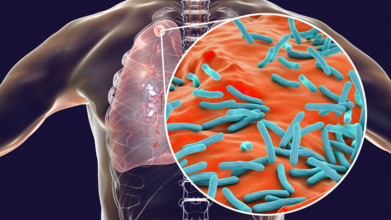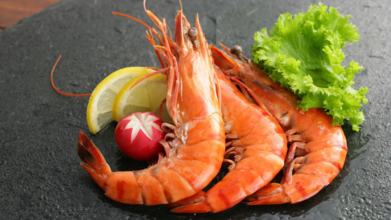- Health Conditions A-Z
- Health & Wellness
- Nutrition
- Fitness
- Health News
- Ayurveda
- Videos
- Medicine A-Z
- Parenting
- Web Stories
US Vice-President-Elect JD Vance Praises Indian Vegetarian Cuisine And His Journey To a Plant-Based Diet

JD Vance And Usha Vance (Credit-Getty Images)
JD Vance shares his journey to vegetarian food influenced by his Indian American wife Usha Vance and says you should discard the ‘disgusting fake meat’ and eat Indian food instead. Here is what you need to know about India's plant-based diet and how it is good for your body’s health.
Speaking recently on the Joe Rogan podcast, US Vice-President-elect JD Vance shared his journey into plant-based eating, a shift inspired by his Indian-American wife, Usha Vance. Vance admitted that he was once a staunch believer in the idea that a meal is incomplete without meat. He recalled his first attempt at preparing a meat-free meal which he laughed about calling the meal prepared “disgusting.” He had tried to make a vegetarian pizza with dough topped with raw broccoli and ranch dressing.
Indian vegetarian food has a lot of variety to it as a majority of people in India still prefer eating vegetarian food some reasons include, religious beliefs, lack of availability and higher costs of meat and due to health reasons. With the availability of a lot of vegetarian options, it also makes healthy eating easier for people. Vance expressed his admiration for vegetarian dishes stating, “They make very good vegetarian food”, he explained how his preferences shifted after he met Usha, he started enjoying Indian food more than the processed food that was available to him.
Rejecting Artificial Meat For Indian Vegetarian Food
While Vance admitted that he was sceptical of meatless meals claims that people should ditch the “disgusting fake meat” and should prefer eating “paneer, rice, delicious chickpeas”. Recently due to the vegan movement in the US, many people have opted to eat plant-based foods and reject any animal-based products even milk, curd or eggs. There have also been lab-grown meat that has come into circulation for people since last year. Vance also expressed his admiration for Usha’s cooking, sharing that her Indian vegetarian dishes are “exceptional.” With visible enthusiasm, he encouraged anyone considering vegetarianism to try Indian cuisine, calling it rich in “incredible vegetarian options.”
Ways Vegetarian Food Is Healthier Than Non-Vegetarian Food
A properly planned vegetarian meal offers a lot of health benefits compared to a diet that includes meat. Here are some key advantages. In case you are on any medication or going through some treatment then make sure you consult a healthcare professional before making any changes to your diet.
Heart Disease
Vegetarian diets are often lower in saturated fat and cholesterol, which are major risk factors for heart disease. Vegetarian food can help you lower your risk of heart disease and reduce your blood pressure as well.
Type 2 Diabetes
Plant-based diets can help regulate blood sugar levels, reducing the risk of developing type 2 diabetes. These foods are lower in glycaemic index, meaning they take more time to get absorbed, preventing a spike in blood sugar.
Certain Cancers
Studies have shown that vegetarians may have a lower risk of certain types of cancer, such as colon and prostate cancer. These plant-based diets are rich in antioxidants and can also protect your heart from free radicals.
Higher Fiber Intake
Vegetarian diets tend to be rich in fibre, which promotes healthy digestion, prevents constipation, and can lower the risk of colon cancer. It helps you improve your digestive system and help you regulate your blood sugar.
Better Diet Could Help Defeat Tuberculosis, Says ICMR Study Backed by WHO

(Credit - Canva)
The dangers of tuberculosis may seem like the thing of the past; however, its effects still remain. The World Health Organization has speculated that TB has returned to being the leading cause of death all around the world after 1.25 million people died of it in 2023. In the same year, an estimated 10.8 million people fell ill with TB with 6 million men, 3.6 women and 1.3 million children. The surprising fact is that the TB present in all these countries, is curable.
There are many factors that affect how well a country tackles TB with. A study funded by the Indian Council of Medical Research (ICMR) has shown that better nutrition can significantly reduce tuberculosis (TB) cases and deaths. The World Health Organization (WHO) has recognized these findings and included them in its updated global guidelines for controlling the disease.
The main goal of the study was to see how giving nutritional support to people living with TB patients would affect whether they got the disease themselves.
What Are Some Factors That Can Help Cure TB?
Researchers worked with 2,800 TB patients and their families in four districts of Jharkhand, India. The study, published in the medical journal The Lancet, noted that in India, TB and poor nutrition are very common at the same time, especially among patients and in the general population.
In the study, all TB patients received food for six months. However, only the families in the "intervention group" received monthly food packages and micronutrients. The researchers followed up with all participants to see how many new TB cases appeared over time.
How Does Nutrition Impact TB?
The study, which ran from 2019 to 2021, found that giving nutritional support to families of TB patients led to a significant drop in new TB cases. This was the first study of its kind to show that nutritional help can substantially reduce the spread of TB within a household.
The study concluded that this approach, which combines medical and social support, could help speed up the fight against TB in communities where both TB and poor nutrition are big problems.

Nutrition and Tuberculosis: Why Does It Impact So Many People?
According to a 2025 study published in the Tropical Medicine and Infectious Disease, looked at how nutrition programs for people with tuberculosis (TB) are working in India. Researchers talked to TB patients, their family members, and healthcare providers in five different states between August 2023 and April 2024. The goal was to understand their experiences and thoughts on getting nutritional help.
Understanding Nutrition
Patients and their families understood that good nutrition is important for treating TB. However, they faced challenges in getting the right foods.
Changes in Diet
While many tried to eat more protein, they often struggled with food insecurity—meaning they didn't have enough food because they were poor.
Issues with Financial Aid
The Direct Benefit Transfer (DBT) program, which gives money directly to people, had problems. Participants felt the money wasn't enough and that there were gaps in how they could access it.
Preferred Delivery Method
People preferred getting food and support directly from TB treatment centers. They were less keen on using other systems or middlemen to get their nutritional help. Based on these findings, the study suggests a few changes to improve the program:
- Provide more protein-rich food and increase the financial support to better meet people's needs.
- Fix the problems with the DBT program to make sure people can easily get the money they are given.
- Consider giving ready-to-eat food directly to patients at TB treatment centers.
Shoppers Beware From The Radioactive Shrimp! Walmart Recalls Popular Frozen Seafood In 13 States

Credits: Canva
Walmart has recalled certain lots of its frozen, raw shrimp sold across 13 states after federal officials detected traces of radioactive contamination. The U.S. Food and Drug Administration (FDA) confirmed that the shrimp may contain Cesium-137, a radioactive isotope, and urged consumers to dispose of the affected products immediately.
What Triggered the Recall
The FDA said it asked Walmart to pull three lots of its Great Value brand frozen shrimp from store shelves after routine inspections revealed contamination. The agency detected Cesium-137 in both shipping containers and in a sample of frozen breaded shrimp imported from Indonesia.
Although the levels found were far below the FDA’s intervention threshold, officials said the recall was issued as a precaution.
The contamination was linked to products processed by P.T. Bahari Makmur Sejati, operating as BMS Foods of Indonesia. U.S. Customs and Border Protection first raised the alarm after detecting Cesium-137 in containers arriving at ports in Los Angeles, Houston, Miami, and Savannah, Georgia.
Potential Health Concerns
Cesium-137 is a byproduct of nuclear activity, including weapons testing, nuclear power plant operations, and accidents. While trace amounts of the isotope are already present in the environment, including soil and food, prolonged exposure can increase the risk of health problems.
ALSO READ: Are Power Plant Emissions Really Not Dangerous, As The EPA Claims?
“The risk from the recalled shrimp is quite low,” said Donald Schaffner, a food safety expert at Rutgers University. Still, FDA officials emphasized that minimizing unnecessary exposure is important. “If you have recently purchased raw frozen shrimp from Walmart that matches this description, throw it away,” the agency said in a statement.
What Consumers Should Look For
The recall applies specifically to Great Value brand frozen raw shrimp with the following lot codes:
- 8005540-1
- 8005538-1
- 8005539-1
All three carry best-by dates of March 15, 2027. The products were distributed in Alabama, Arkansas, Florida, Georgia, Kentucky, Louisiana, Missouri, Mississippi, Ohio, Oklahoma, Pennsylvania, Texas, and West Virginia.
Customers who purchased the shrimp can return them to any Walmart store for a full refund, or simply discard them.
How the Contamination Was Found
FDA investigators collected several samples following the customs alert and discovered one contaminated batch of breaded shrimp. The containers flagged at the ports were denied entry into the U.S. But officials later learned that Walmart had received products from shipments that slipped through without triggering contamination warnings.
As a result, Walmart moved quickly to issue a recall. “As soon as we were made aware of the FDA findings, we took immediate action to remove the affected products from our stores,” a Walmart spokesperson said.
Read more news on food recalls
Why Cesium-137 Raises Red Flags
Cesium-137 has been a global concern since the mid-20th century when nuclear testing and accidents released it into the environment. Unlike naturally occurring elements, Cesium-137 is man-made and has a half-life of about 30 years, meaning it can persist in ecosystems for decades.
Ingesting contaminated food over time, even at low levels, could contribute to radiation exposure. While the FDA stressed that the amounts detected in the shrimp were well below harmful levels, experts say cumulative exposure is worth avoiding.
A Precautionary Step
The FDA said its investigation into BMS Foods of Indonesia is ongoing, with inspectors reviewing shipping and production practices. The agency also assured the public that the contamination detected does not represent a widespread risk to the U.S. food supply.
“Consumers should understand that this is not a major food safety crisis,” Schaffner noted. “It is a targeted recall, and the system worked as it should to identify, contain, and address the issue.”
What Happens Next
For now, the FDA continues to monitor imports from the supplier and will take further steps if necessary. Walmart has pledged full cooperation with regulators and stressed that customer safety is its priority.
While the health risk is considered minimal, officials say the recall underscores the importance of vigilance in food safety systems. By acting quickly, they hope to reassure consumers and prevent long-term exposure to contaminants that could pose problems over time.
This Bedtime Drink Could Help You Lose Weight While Balancing Blood Sugar

Credits: Canva
Weight management and blood sugar control are two of the biggest health concerns today, often linked to lifestyle-related conditions such as diabetes, obesity, and metabolic syndrome. While diet and exercise remain the foundation for addressing them, research increasingly points to certain simple, everyday habits that may provide additional support. One such habit involves a bedtime drink that could play a small but meaningful role in promoting weight loss and stabilising blood sugar overnight.
First things first, Apple Cider Vinegar (ACV) is not your average vinegar. Good-quality apple cider vinegar comes with something called “the mother”. This “mother” is the cloudy stuff floating around at the bottom of the bottle, made up of good bacteria, proteins, and enzymes. It is where a lot of the health magic lives.
The acetic acid in vinegar slows down how fast your stomach empties and how quickly sugar gets into your bloodstream. This results in fewer blood sugar spikes, fewer cravings, and possibly, fewer late-night binge eating sessions.
Also Read: Shoppers Beware From The Radioactive Shrimp! Walmart Recalls Popular Frozen Seafood In 13 States
How Vinegar Helps In Weight Loss
ACV is not a miracle weight-loss potion that will have you waking up with abs. But studies do hint at some benefits. Drinking diluted ACV can make you feel fuller, so you do not attack breakfast. At night, it may even work quietly to improve how your body handles sugar while you snooze.
Stable blood sugar means fewer mood swings and fewer 4 pm “must eat chocolate now or will scream” moments. Some small studies even suggest acetic acid might nudge your metabolism into burning a smidge more fat and storing a little less.
The Blood Sugar Bedtime Trick
For anyone watching their blood sugar, a glass of water with a spoon or two of ACV before bed has been linked to lower fasting blood sugar the next morning. Because vinegar helps your body become more sensitive to insulin, which means your body handles the sugar it already has more efficiently.
To be clear, this does not replace medication or advice from your doctor. But as a nightly ritual, it could give your system an extra hand.
How Not to Burn Your Throat
Do not, under any circumstance, chug ACV straight from the bottle. ACV is super acidic and can wreck your teeth or irritate your throat.
Here is how to do it properly:
- Mix 1–2 teaspoons in a big glass of water (never more than that)
- Drink it about 20–30 minutes before bed
- Use a straw to save your teeth from acid erosion
- Rinse your mouth afterwards
- If it still tastes like sadness, stir in a dash of honey or cinnamon
Not Everyone’s Cup of Vinegar
If you’ve got stomach ulcers, reflux, kidney issues, or you are on meds for diabetes or heart health, double-check with your doctor before hopping on the ACV bedtime train. It can mess with certain medications or make existing issues worse.
Does sipping apple cider vinegar before bed melt away fat overnight?
No. But it can be an easy, low-effort habit that gives your body a little boost: steadier blood sugar, fewer cravings, and maybe a small push toward weight loss.
© 2024 Bennett, Coleman & Company Limited



